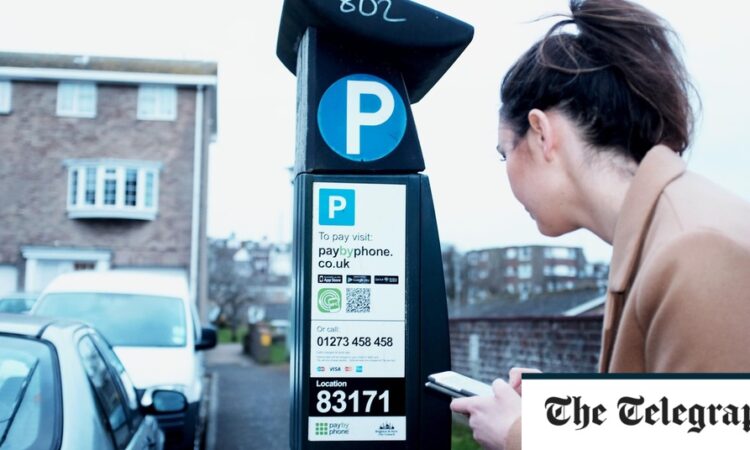
Cashless parking has become an increasingly unavoidable part of driving in Britain as cash use has declined, with a myriad of different parking apps in use by local councils across the country.
The use of coins and notes fell to just 14pc of all transactions in 2022, as banks continue to close ATMs and people increasingly pay using smartphones or cards.
The Government pledged in September last year to simplify parking with a national parking platform that will allow motorists to use just one app of their choice to pay for parking.
The technology is set to be being trailed in a pilot that allows data to be exchanged between different payment operators.
Charging points are also utilised by an increasing number of electric vehicle drivers, with just over 53,000 installed in the UK by November of last year, up almost 50pc on 2022, according to ZapMap which monitors installations across the UK.
Chris Ainsley, head of fraud risk management at Santander UK said: “QR code scams are an emerging issue but like other types of fraud, remaining vigilant and taking a cautious approach can be the best defence against QR code scams.
“People can protect themselves by not scanning any QR code that they suspect isn’t legitimate and for QR codes in public places, check it hasn’t been tampered with or has a sticker placed over the original code.
“Once any code is scanned, people should check that it has taken them to the website they expected it to, and if it hasn’t, they should close the webpage immediately without making any payments.”
TSB bank has also issued a warning, saying it urged “caution before making a payment – check to see that the website looks genuine, but better still use the official app or find the website yourself”.
Cyber experts said drivers should pay close attention to the edges of QR codes to see if they are stuck on, which could indicate they are fake.
Reader Chris Saynor, 48, said his MBNA credit card was blocked when he tried to pay for parking in Cambridge in late November, using a QR code on a parking meter.
Mr Saynor said he had been told by the credit card company that it was being “very careful” about the scams.
He explained: “They said: ‘Please don’t use QR codes or anything in shops’. On parking apps, they’d found that people were putting their own QR codes on.”
Just weeks later, he said, unauthorised payments totalling nearly £3,000 were taken from his account over several days. Mr Saynor said he could not be certain how the scammers obtained his card details. He has now been refunded most of the money.
A spokesman for the banking trade body UK Finance said QR code scams “can catch people off guard if they’re in a location where people are expecting legitimate information, like a restaurant menu or a train station”, adding the “scams can also be used to trick people into downloading malware”.
MBNA was approached for comment.





